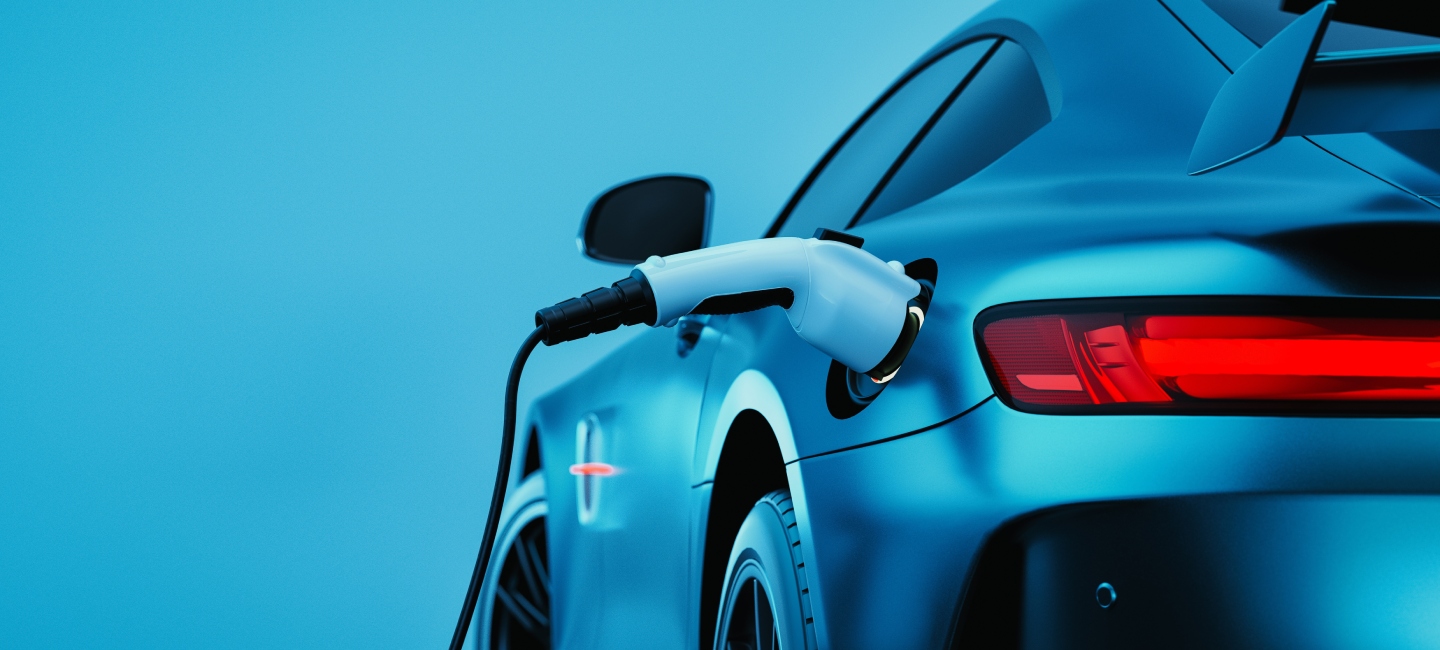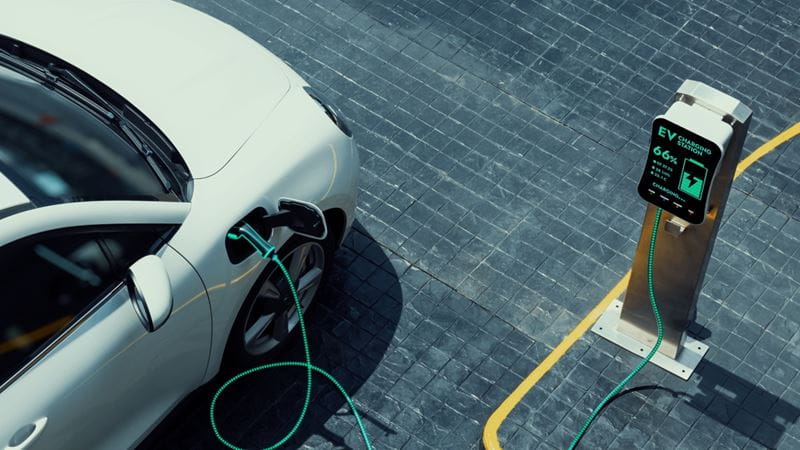
There are now more than a million battery-powered vehicles on UK roads, and experts predict that 20% of drivers will go electric by 2035.
But a survey from Carwow found that over-55s were the most reluctant to make the switch to electric cars – commonly referred to as electric vehicles, or EVs – with two-thirds put off by concerns over price.
Although the upfront cost of buying an EV is high (a report from Autotrader suggests buying a new electric car costs 31% more than petrol or diesel) they have fewer moving parts, so in theory there’s less that can go wrong and you won’t need to pay for oil changes.
But, if something does go wrong repairs are, on average, 25% more expensive.
The research also said that second-hand prices for electric cars are dropping as more choice becomes available, with Parkers reporting that a four-year-old EV is now 14% cheaper than its petrol or diesel counterpart.
Then there’s the cost of insurance to consider. For some time, insuring an EV has been more expensive than its petrol or diesel counterparts, and while there are a variety of factors to think about, data from Saga Insurance suggests that electric cars still cost more to insure.
But expense aside, there are many positives to EV ownership too: zero exhaust emissions are good for the planet, charging offers good value - particularly at home on an EV-friendly tariff - and many owners say they’re a joy to drive.
While cost is a key consideration, what about living with an electric car day-to-day? We spoke to several older EV drivers to find out how expensive they found driving an electric car, and whether they’re still happy that they made the switch.
Many of the EV drivers we spoke to cited ‘environmental reasons’ as the motivation for buying one - and that they fell in love with them on the test drive.
Lisa Ingram, 60, from Frensham in Surrey, runs an organic cotton company. She bought a Nissan Leaf 18 months ago and saved around £7,000 on the list price because it had 2,000 miles on the clock. For her, the environmental benefits were the big selling point.
“It makes me smile every time I get in it,” she says. “When I’m overtaking a cyclist or someone walking their dog on a country lane, it’s good to know I’m not blasting fumes into their face.
“You can’t beat it for short trips, popping to the shops and delivering parcels for our eco-friendly company, Little Leaf Organic, but longer journeys do have to be planned out beforehand, deciding where to stop and charge en route.”
Danny Morgan, Head of Sales and Marketing at home charge point installer Smart Home Charge, says: “A lot of the focus [on electric cars] has been on the environmental angle, but many people drive EVs simply because they like them. They’re easy to use and they offer a smooth driving experience.”

In terms of fuel costs, the headline figures favour electric vehicles, particularly if you’re able to charge your battery at home. “There are two main tiers of saving when you buy an EV,” says Morgan.
“The first is fuel consumption. If you look at the cost of a 1.5 litre petrol Mini, if you’re doing 10,400 miles a year, the cost in fuel comes to [approximately] £1,400.
“The cost to charge the equivalent electric Mini for the same mileage is around £685, so that’s a saving of about £715 on a standard electricity tariff.”
With charging points costing in the region of £1,000 to install, that outlay should be recovered in just over a year, he claims.
"The second stage of saving comes if you switch to an EV-friendly energy tariff and charge overnight.”
Many energy suppliers now offer such tariffs for cheap overnight charging, for example, EDF, British Gas and Intelligent Octopus Go.
Hypnotherapist Helen Davis, 58 from Petersfield, says she’s found her electric Renault Zoe to be low maintenance and cheap to run. The only problem she’s had with it in the five years of ownership has been a glitch with a seatbelt.
“In my last car, I was regularly paying £70 to fill up the tank. With no road tax, I feel like I’ve saved money [driving an electric car].
"That said, the car cost more to buy and I couldn’t get my money back if I wanted to sell it tomorrow because the price has gone down so much.”
She hasn’t opted for a home charger because she doesn’t have off-road parking. “The local council offices are walking distance from my house, so I can walk round, leave it charging for an hour or so and then go and pick it up.” Helen says she spends around £8 each time she tops up.
Tim Birtwhistle, 75, who's retired and lives in North Yorkshire, bought a VW id3 Pro S last year and says it offers “cheap, well-equipped motoring with no range anxiety.
“Servicing costs less than for an ICE (internal combustion engine) vehicle and there are more HEVRA garages around (independent garages that can service electric and hybrid vehicles), which saves on main dealer costs.”
Tim has invested in solar panels and a home charger (paid for by Renault when buying a car in 2019) and charging overnight on E.On’s Next Drive tariff, which costs him 7p per kWh.
But some drivers, like 75-year-old Gill Baron from Leicester, who’s retired and drives a Renault Zoe, point out that saving money is not straightforward. “EV owners doing higher mileage [near] home can save money on fuel costs, but charging away from home is very expensive now,” she says.
The average cost of public charging is now 48p per kWh, compared to as little as 7p on an EV tariff at home.
Then there’s the fact the EV drivers are going to lose a current exemption over petrol and diesel car drivers.
“This year there’s no road tax on EVs, but from April 2025 it’ll cost up to £190 a year. I’ve had three EVs and I wouldn’t say I’ve saved money,” says Gill.
She reckons this is because she doesn’t rack up enough miles to benefit from fuel savings. “I must confess I keep an old diesel car for longer journeys because charging adds a lot to travel time and while you’re waiting at a service station you go in and drink coffee and eat cake, which all adds up.”
Without the ease of being able to fill up your tank in minutes and fuel stations never far away, some motorists do worry about the range of EVs and the risk of running out of charge before they’ve reached their destination.
While the latest Tesla Model 3 boasts a range of more than 300 miles, (and some ‘road-legal’ cars managing up to 750 miles on a single charge), an eight-year-old Renault Zoe will struggle to do 80 miles, especially on a cold day (where the colder temperatures can really reduce the efficiency of car batteries).
It’s easy to see why some EV drivers we spoke to (like Gill) confessed to having a petrol or diesel car in the garage for longer journeys.
Tim says: “Charging out and about is expensive and, although availability is improving in most areas and London is ahead, you do have to plan a long journey.”
Helen agrees. “I do a weekly round-trip of 140 miles and I can just about do it in the winter without charging if I wrap up and don’t have the heating on,” she says.
“It’s changed the way I drive, so if range is an issue I’ll stick to 60mph.” (Using the heating and air conditioning drains the battery more quickly, as does driving faster.)
Gill also worries about charging on the go: “The charging infrastructure in England is abysmal. Apart from the high cost, you’ll find chargers that are broken and there are often queues.”
So, while EV owners enjoy the driving, many we spoke to used a different car for long journeys or took the train.
But when we asked if any of them would go back to petrol or diesel, not one driver said yes. Despite the drawbacks, Gill says she has no regrets.
“I was an ‘early adopter’, and in the early days, I used to go to get-togethers with other owners. Now my Renault Zoe is perfect for local trips and especially around town.”
Embracing the technology of an EV as well as how fun they are to drive were also themes that came up time and again. Lisa describes her car as “a dream to drive” while Helen says she finds longer journeys more comfortable than in her previous petrol car.
“It’s so smooth and the driving feels so much easier,” she says. “Even if I’ve had a long journey, I don’t feel as tired as I did in my old car – I think the lack of vibration helps.”
Lisa also loves the idea of recharging the battery while driving, which works by giving the battery a small boost whenever you brake, putting power back into the car. “There’s a route home where I can actually put a couple of miles back on,” she says.
Then, of course, there’s the fact that you’re generating zero emissions from the exhaust and keeping the air cleaner. As Tim says: “Our first electric car was a Renault Zoe and it met all our expectations as a ‘local shopping trolley’, so now we’re all EV.
“Clean air is a very valuable commodity, and we want our grandchildren to breathe more easily.”

There’s billions sitting unclaimed in shares and dividends – find out if any belongs to you.

From their first savings account to their first home, find out how your gifts can make the biggest impact for your grandchildren
.jpg?la=en&h=354&w=616&hash=653168623B92F3457D40ACA115D37B3E)

.jpg?la=en&h=354&w=616&hash=458B0288E9852F4B63A433E2FDD375E7)



We're here to help you make the most with your money. With a rage of financial services designed with over 50s in mind.